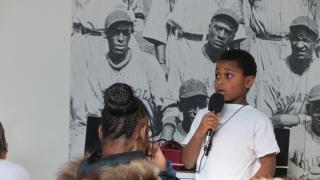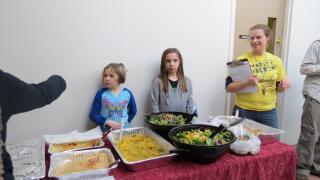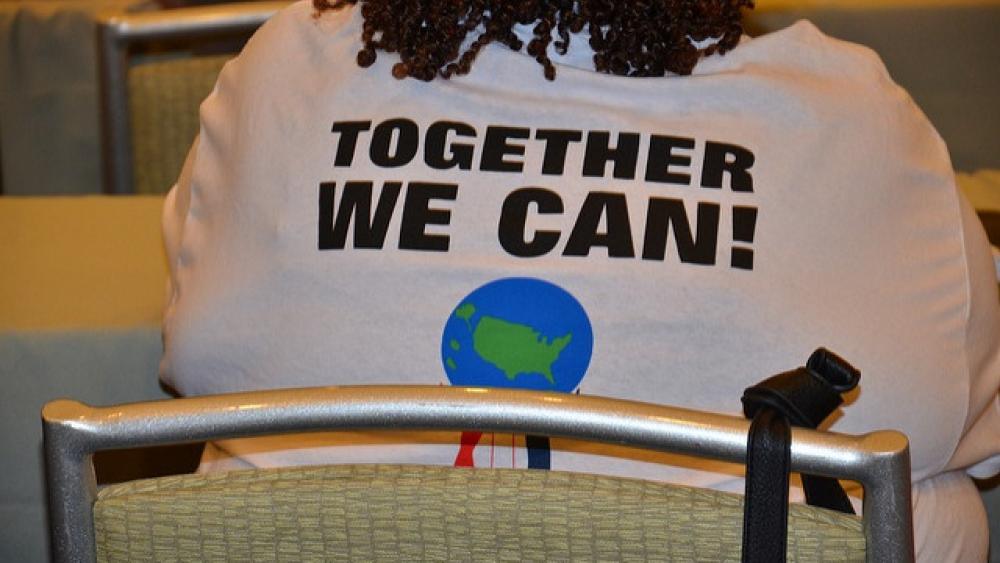Guest Blog by Ryan Steuer, Executive Director at Magnify Learning
Stewardship is often defined as the careful and responsible management of our environment. With Earth Day 2017 behind us, I would like to inspire you to move from the environmentally focused definition of stewardship to the broader implications of stewardship.
Using one school’s experience as an example, this article asks and answers the question: How can we be good stewards of our youth, community, organizations, and, even our environment?
A Story
 The School for Community Learning in Indianapolis has centered their mission around this larger idea of stewardship. One core belief of the school is to “teach through a lens of interconnectedness, helping our students know themselves, others and the world around them.” Stewardship starts with a deeply held belief in the value of something or someone. The School for Community Learning values their students, community, and environment in a sustainable system that both inspires and empowers. In order to tell you more about the school, I’m going to share a story about a group of their elementary students.
The School for Community Learning in Indianapolis has centered their mission around this larger idea of stewardship. One core belief of the school is to “teach through a lens of interconnectedness, helping our students know themselves, others and the world around them.” Stewardship starts with a deeply held belief in the value of something or someone. The School for Community Learning values their students, community, and environment in a sustainable system that both inspires and empowers. In order to tell you more about the school, I’m going to share a story about a group of their elementary students.
The third through fifth graders were charged with the idea of providing a service to the community. The young philanthropists chose to hold a community meal on Martin Luther King, Jr. Day. A valiant cause to be sure, and when I asked them why they chose this service project, I was blown away!
The fourth graders explained to me that students across the city would be out of school on Martin Luther King, Jr. Day and would not be receiving their usual free lunch, so the community meal would be “really important.” Other students talked about food deserts, the lack of nutrition in many donated food items, and the need to be environmentally conscience during the project. I was speaking to young stewards of people, community, and environment.
The day of the free community meal was well attended by community members of all ages. The youth from The School for Community Learning served all of the meals they had prepared alongside a local chapter of “Food not Bombs,” an organization that focuses on food recovery.
The meal was a celebration of learning and much more; as the students showed their care for the neighborhood, and the neighborhood showed their appreciation for the students. Through their actions, these young stewards began to teach others what stewardship means.
You see, stewardship itself is a noun, but it is through the actions of people that stewardship is truly defined. It is the verbs of people who care, share, protect, feed, prepare, speak, endure, plant, try, develop, mentor, give, donate, trust, and love.
What verbs define your personal commitment to stewardship? Where could you start to look at your area of responsibility differently?

Plan a Service-Learning Project
You do not have to start from scratch! Learning to Give can help you teach stewardship and plan a service-learning project in the classroom and the community. This Service-Learning Toolkit from the Learning to Give library will inspire you with lessons, project ideas, and community resources. Connect with your local resources and customize your project to meet your community needs. Challenge your young stewards to care, protect, mentor, and love their community.
One of the best parts of Learning to Give lessons is the dual focus of instilling stewardship and meeting your curriculum needs. Service and Stewardship are not an add-on. This approach is designed to infuse your daily content needs with the engagement of service; meaning, Learning to Give connects you to resources and lessons that meet your curriculum needs.
I challenge you to try this sort of project out before the end of the year! With the framework of this stewardship toolkit and the bank of philanthropic lesson plans from Learning to Give’s searchable lesson library, you have more supports than ever before. Jump in and inspire your students to be stewards!
About the author:
Ryan Steuer believes our job as educators is to fill learners with passion to help those around them. Ryan believes Project Based Learning and Service Learning are the vehicles to stirring passion and mastering standards! After starting his career as an Industrial Engineer, Ryan brought his business background to 8th graders in Indianapolis, where he created a PBL school within a school. Now as the Executive Director of Magnify Learning, a nonprofit organization specializing in PBL professional development, Ryan shares his passion for student driven learning environments with teachers across the country.
Follow Ryan on Twitter: @ryansteuer @magnifylearning
